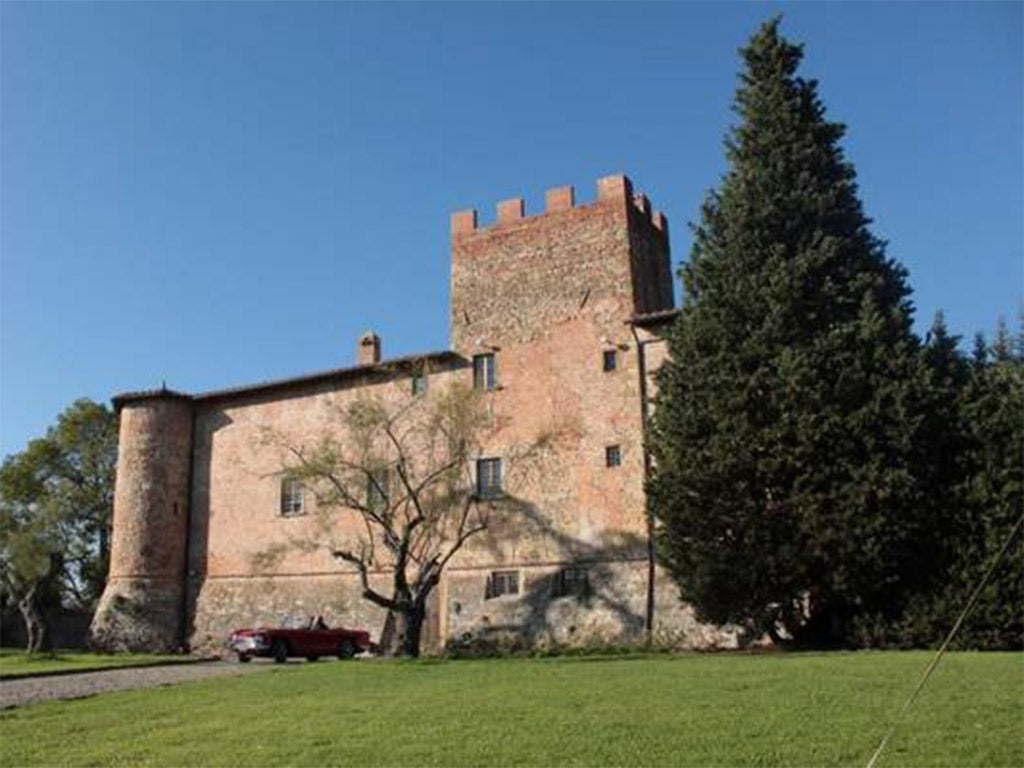Wealthy Russians snap up castles from Italy's hard-up aristocrats as rouble goes into freefall
Scores of privately owned castles and palaces have been put on the market

Your support helps us to tell the story
From reproductive rights to climate change to Big Tech, The Independent is on the ground when the story is developing. Whether it's investigating the financials of Elon Musk's pro-Trump PAC or producing our latest documentary, 'The A Word', which shines a light on the American women fighting for reproductive rights, we know how important it is to parse out the facts from the messaging.
At such a critical moment in US history, we need reporters on the ground. Your donation allows us to keep sending journalists to speak to both sides of the story.
The Independent is trusted by Americans across the entire political spectrum. And unlike many other quality news outlets, we choose not to lock Americans out of our reporting and analysis with paywalls. We believe quality journalism should be available to everyone, paid for by those who can afford it.
Your support makes all the difference.Russian magnates are leading the charge to buy castles from Italian aristocrats. Across the Bel Paese, 70 privately owned castles and palaces, many of which have been in old Italy families for generations, are on the market, amid stories of Italian nobility selling off paintings to pay the bills.
According to the Florence-based Lionard Luxury Real Estate, Italy’s nobles are setting their sights on super-rich foreign buyers, with 80 per cent of interest coming from Russian clients.
The latest landmark to fall into foreign hands is the Castello di Tavolese, which belonged to the family of Farinata degli Uberti. It was sold for between €10m (£8m) and €20m.
With the rouble crashing as Russia suffers falling energy prices and biting sanctions over its Ukraine policy, some the country's wealthiest magnates are seeking to invest their millions overseas.
The added allure of an aristocratic pile in Italy was the icing on the cake, said Arianna Giovannini of the upmarket Florence estate agent. Her colleague, Dimitri Corti, Lionard’s chief executive, told Il Sole 24 Ore newspaper: “Our market research has shown the majority of clients interested in the purchase of historic homes and luxury villas have come from eastern Europe, in particular Russia and Turkey.”
In October, it emerged that a Russian buyer had bought one of the most glamorous villas on the Tuscan coast for €6m to transform it into a hotel. The Villa Godilonda, was previously owned by the Bulgari family, famed for its up-market jewellery.
But the influx of Russian money into some of Italy’s most sought after regions has not occurred without ruffling a few feathers.
To cater to local sensibilities, authorities in the Tuscan seaside resort of Forte dei Marmi, the traditional summer beach spot for northern Italy’s upper middle classes, announced in 2010 that they were reserving space with sea views that would be used to build new homes exclusively for locally born buyers or long-term residents.
The move came after traditional restaurants and shops were being replaced by Ferrari show rooms and designer boutiques.
But with the Italian economy in perpetual recession, and the upper classes’ cash flow problems exacerbated by new property taxes, many have been more than willing to cash in.
And Mr Corti predicted that others will soon follow the Russians' lead: “The clients of the future will be Asian: China and Hong Kong in the lead,” he said.
“Today 90 per cent of clients for these types of properties are foreigners who are not searching just for a luxurious home but for a dream [and] a way of life,” he said.
Join our commenting forum
Join thought-provoking conversations, follow other Independent readers and see their replies
Comments